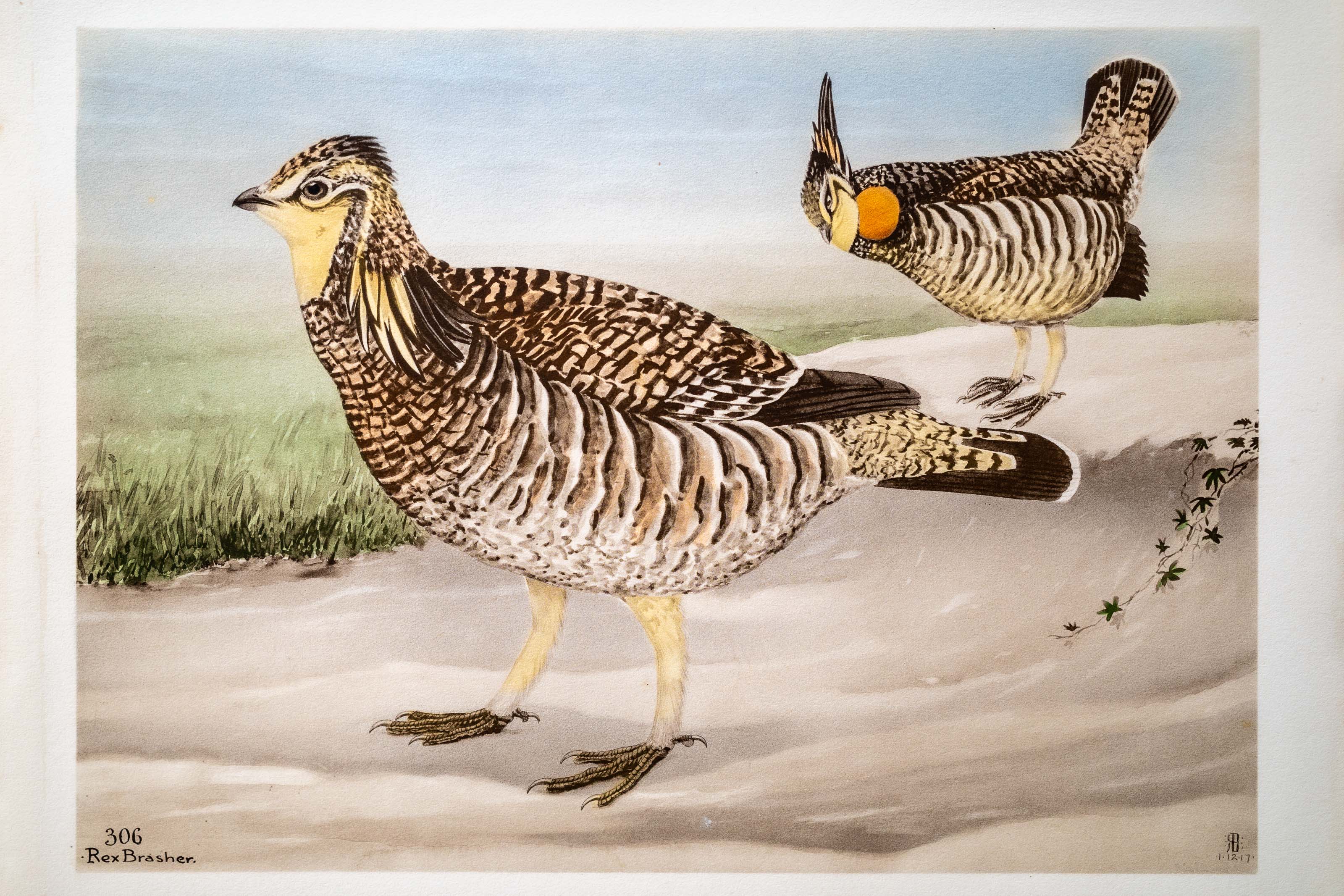

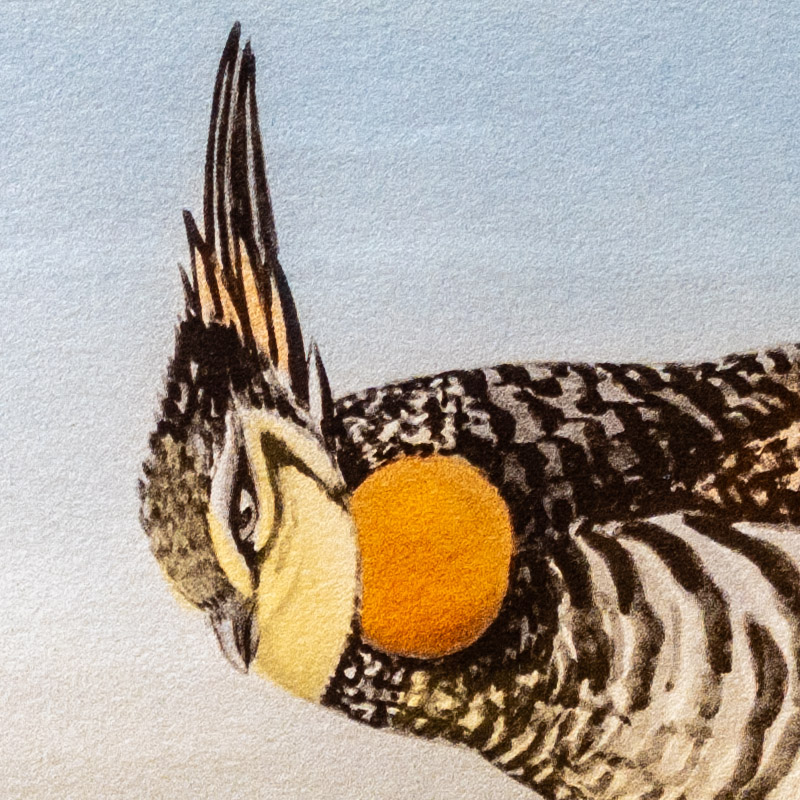
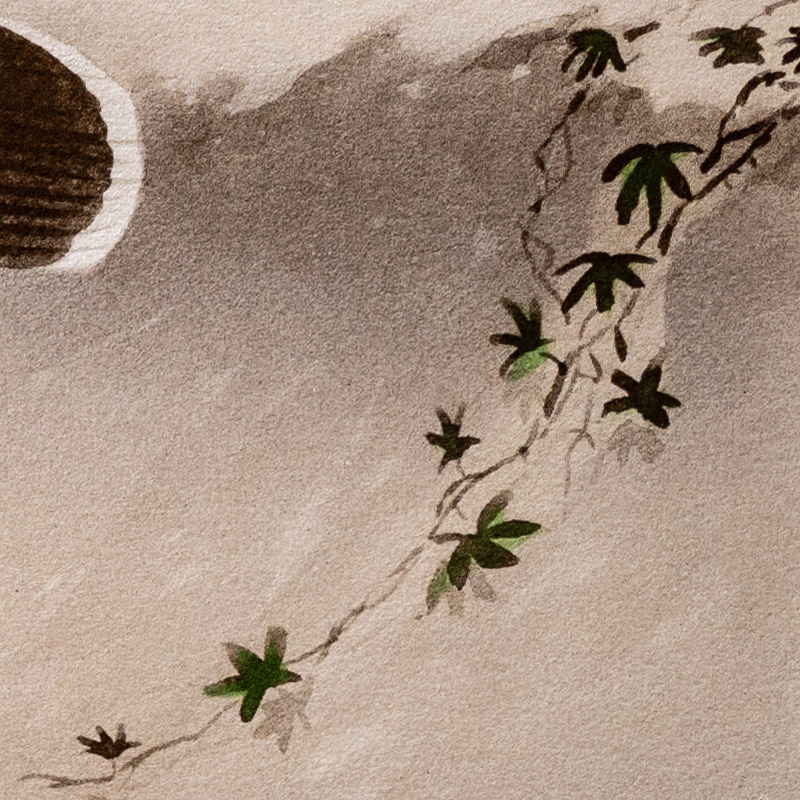
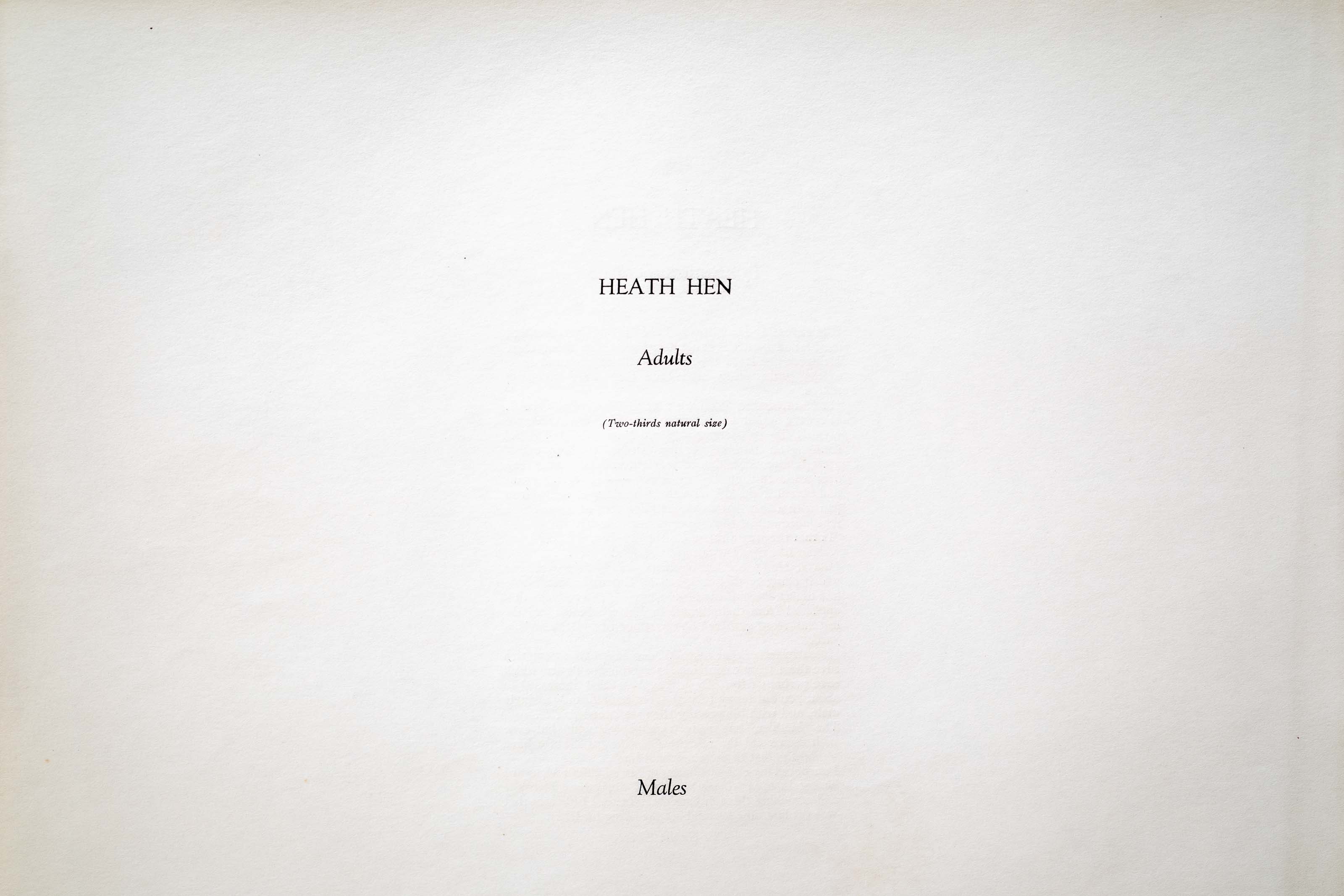
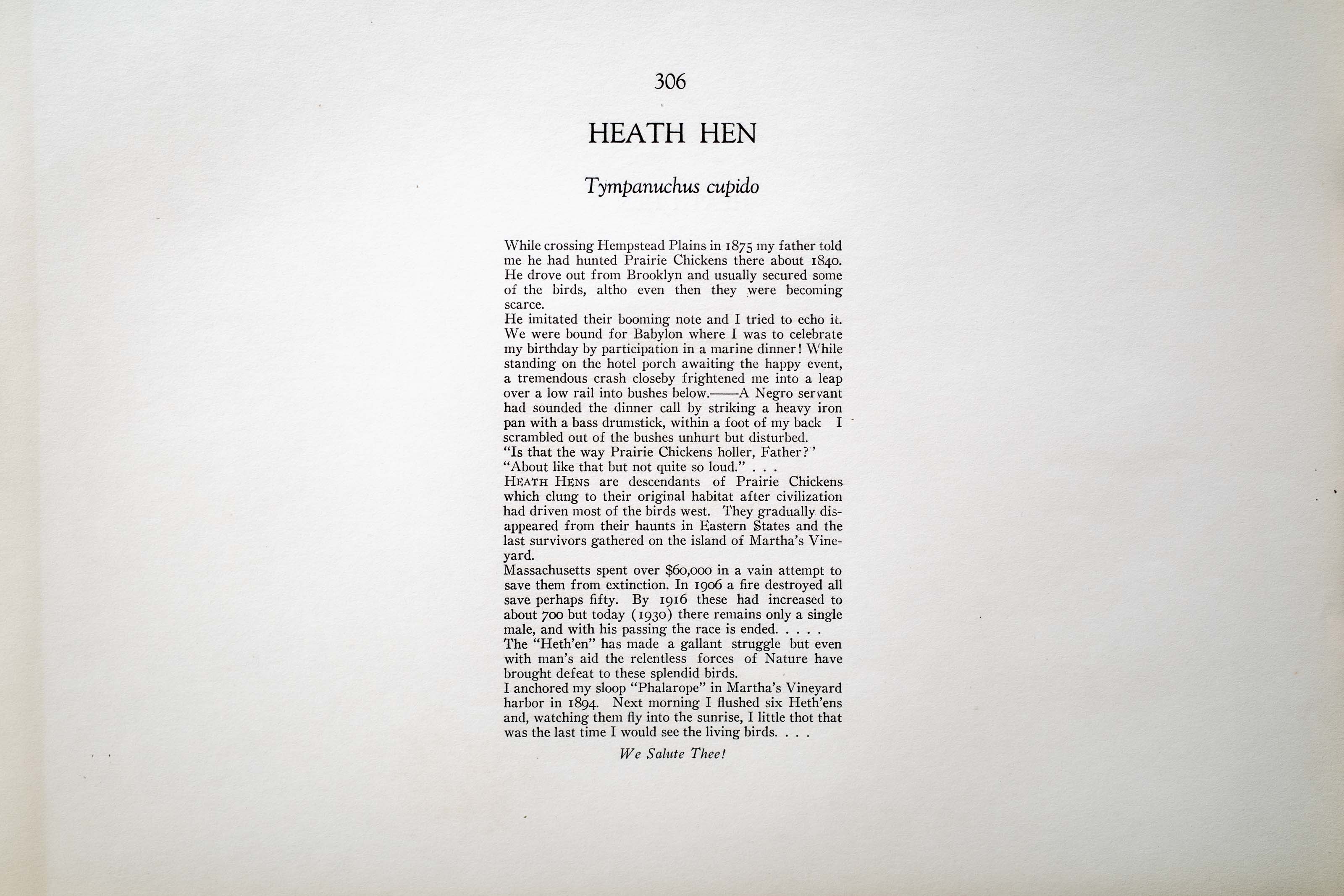

1917
1930
5
306
A team of dedicated board members, volunteers, and student interns has published every page in Volume 9. This volume includes 360 images of paintings and lyrical descriptions of birds, now available online for everyone to enjoy anywhere in the world. This is a monumental task. Each volume requires approximately 400 hours to photograph, edit, transcribe, catalog, and publish online. We need your support to complete this work.
If you're tech-savvy, have a good eye, are meticulous with details, and love structured data, please consider volunteering by emailing us at hello@rexbrasher.org.
We encourage all bird lovers and supporters to consider a monetary donation to support our mission to make Rex's work available for everyone. You can provide a one-time or recurring donation online.
While crossing Hempstead Plains in 1875 my father told me he had hunted Prairie Chickens there about 1840. He drove out from Brooklyn and usually secured some of the birds, altho even then they were becoming scarce.
He imitated their booming note and I tried to echo it. We were bound for Babylon where I was to celebrate my birthday by participation in a marine dinner! While standing on the hotel porch awaiting the happy event, a tremendous crash closeby frightened me into a leap over a low rail into bushes below. ⸻ A Negro servant had sounded the dinner call by striking a heavy iron pan with a bass drumstick, within a foot of my back. I scrambled out of the bushes unhurt but disturbed.
"Is that the way Prairie Chickens holler, Father?"
"About like that but not quite so loud." . . .
HEATH HENS are descendants of Prairie Chickens which clung to their original habitat after civilization had driven most of the birds west. They gradually disappeared from their haunts in Eastern States and the last survivors gathered on the island of Martha's Vineyard.
Massachusetts spent over $60,000 in a vain attempt to save them from extinction. In 1906 a fire destroyed all save perhaps fifty. By 1916 these had increased to about 700 but today (1930) there remains only a single male, and with his passing the race is ended. . . . .
The "Heth'en" has made a gallant struggle but even with man's aid the relentless forces of Nature have brought defeat to these splendid birds.
I anchored my sloop "Phalarope" in Martha's Vineyard harbor in 1894. Next morning I flushed six Heth'ens and, watching them fly into the sunrise, I little thot that was the last time I would see the living birds. . . .
We Salute Thee!